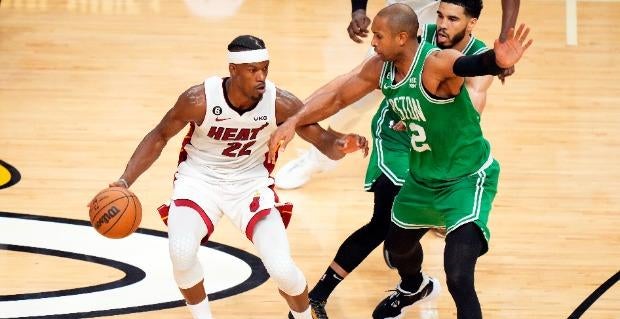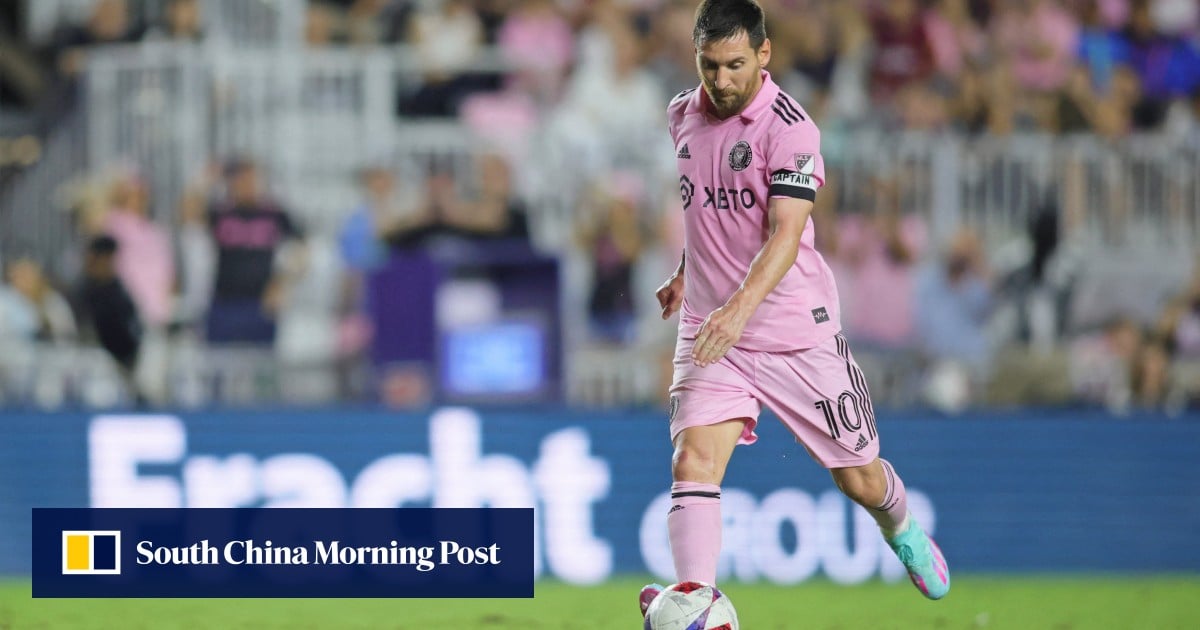Miami booster John Ruiz not worried about NCAA investigation

Roughly 10 months after the NCAA allowed college athletes to profit from their name, image and likeness largely in response to a Supreme Court ruling, Ruiz says he is more than halfway to his goal, having signed or reached the final stage of contracts with more than 100 athletes — most of whom play football, baseball or basketball for the Hurricanes.
LifeWallet, his company that deals with medical records, accounts for roughly $5 million in NIL deals, Ruiz said in a recent telephone interview, while his niche company, Cigarette Racing, accounts for $300,000 to $400,000.
Ruiz, who was characterized as “the Knight in Shining Armor for Hurricanes fans” in a recent Miami Herald profile, insists that the work the athletes do in exchange for their compensation, which generally consists of filming commercials or promoting the brands on social media, has generated a significant return for his companies.
Yet he also believes the still-evolving NIL landscape is riddled with unfairness, putting universities in states with restrictive rules at a competitive disadvantage to those in states with no rules while leaving students and their families vulnerable to exploitation, given the fact that few are experienced in contract negotiations.
“It seems to me it’s in disarray,” Ruiz said, adding that he has offered to consult with the NCAA on remedies. “I just don’t think the people that were putting NIL deals together really thought through the real purpose.”
That said, Ruiz has seized this new commercial opportunity with unrivaled zeal. He insists he is doing so in full compliance with NCAA rules — namely, that he is not using NIL deals to coax recruits or transfers, nor is he simply handing out cash without requiring athletes to perform a specific job or service in exchange.
“I have zero concern [of an NCAA investigation],” Ruiz said. “If they speak to the players, which they’re welcome to do, they’re going to see that I’ve never enticed a player or done anything like that. And [the same] if they speak to the agents. I have zero concerns.”
Nonetheless, Ruiz’s deals are not without controversy.
Few NIL deals have attracted more attention than his, partly because he is their chief promoter.
He announced via Twitter on April 23 that Kansas State guard Nijel Pack was transferring to Miami, adding: “The biggest LifeWallet deal to date, two years $800,000.00 total at $400,000.00 per year plus a car. Congratulations!!!”
Soon after, Miami’s Isaiah Wong threatened via his agent to transfer unless his $400,000 NIL deal with Ruiz was increased, given his contribution to the Hurricanes’ success in the NCAA tournament.
Ruiz resolved the dispute with minimal fanfare.
“I just spoke frankly to the agent and spoke frankly to the family: ‘Look, I don’t think this is the way to go about it,’ ” Ruiz recounted. “I said: ‘We have a deal. It’s in writing. … Every deal has its value for our company, and we determine that. You’re not going to get any more money; that’s just the way that works.’ ”
The controversy followed the highly publicized transfer to Miami of Fresno State’s standout women’s basketball players, twins Hanna and Haley Cavinder, who also signed NIL deals with Ruiz.
From the outset, the chief concern of athletic administrators was that NIL deals would be used as recruiting inducements, flouting the NCAA’s long-standing prohibition on college boosters getting involved with prospective students.
The traditional hypothetical was that a lone, renegade booster with a car dealership, for example, would coax a top recruit to his alma mater with an under-the-table payment or the promise of a snazzy new ride.
In the first year of NIL agreements, a steroid-fed version of that has emerged in which several boosters pool money to create school-specific collectives that bankroll deals specifically to land recruits. That, in effect, is thinly veiled “pay for play,” which the NCAA prohibits.
Big East Commissioner Val Ackerman, co-chair of an NCAA panel that spent months last year devising recommendations for a coherent, workable NIL policy, explained the basic pillars of the “interim” policy that governs NIL deals.
“Number one, NIL payments can’t be inducements to go to a particular school,” Ackerman said. “And, two, they can’t be pay for play. They can’t be based on athletic performance. It’s third-party money, and it’s supposed to be for some attribute other than just being on the offensive line or being a starting point guard. It has got to be for some legitimate quid pro quo; you’ve got to do some work. Most of the work, it seems, has to do with social media content; that’s the new-age endorsement deal.”
It is a fine line and near impossible to police, given that the NCAA has no presumptive right to examine NIL contracts.
Still, alarmed by a spike in NIL deals that look an awful lot like improper recruiting inducements, the NCAA’s Board of Directors issued formal “guidance” this month to reiterate the long-standing ban on boosters engaging in recruiting, noting that it considered “collectives” to be boosters. Moreover, the board notified universities, collectives and boosters that the NCAA enforcement staff was empowered to investigate seemingly egregious deals and monitor agreements going forward.
Ruiz insists his deals will withstand any scrutiny. All of his NIL deals are reviewed by Miami’s NCAA compliance office, he has said. Moreover, he notes, he is not a collective but a business owner who signs athletes for marketing purposes.
“I don’t believe in collectives,” he said. “They are established just to kind of skirt around the rules rather than have legitimate purposes. What we do is a legitimate, arm’s-length transaction. We get the players to either film a commercial, post either through Twitter, Instagram or TikTok. Every single situation calls for a different review, a different number, different dynamics.”
Athletic performance is not among them, he added, even in the case of Pack.
“The reason we entered into the agreement is because he was the number one player in the [transfer] portal, and I figured he has a lot of following,” Ruiz said. “I had read up on him, but I had never seen him play. I didn’t really know his athletic ability. What I was focusing on was the marketing opportunity of being able to capture as an NIL athlete the number one player in the portal.”
Ruiz said the decision to publicize the value of Pack’s deal only accrued more publicity for his business.
“We got over 5 million impressions,” he said, adding that the national buzz immediately increased Pack’s value.
“As you move forward, every time that he plays this season, he will be measured against the question of whether we, as LifeWallet and Cigarette, are getting their true marketing dollars [worth] — ‘Was that a good deal or a bad deal?’ ” Ruiz said. “It’s a positive for him and a positive for us.”
While the transfer decisions of Pack and the Cavinder twins have drawn considerable attention, Ruiz said 90 percent of his NIL deals are with enrolled students, including some at Florida International. And all deals require work in return, he said.
LifeWallet designed a commercial featuring Miami quarterback Tyler Van Dyke and the offensive line, for example, in which Van Dyke emerges from a large SUV carrying a silver briefcase while being guarded by his teammates.
“A lot of people tie in NIL with athletic ability, but it’s not connected at all,” Ruiz said. “You can have a really, really good athlete that may very well not be very valuable as an NIL contract. Maybe they don’t tweet or have Instagram. They may be an introvert. They may not have interest, and that’s okay. They still have a place in the ecosystem in sports, but it may not necessarily be on the NIL side.”


